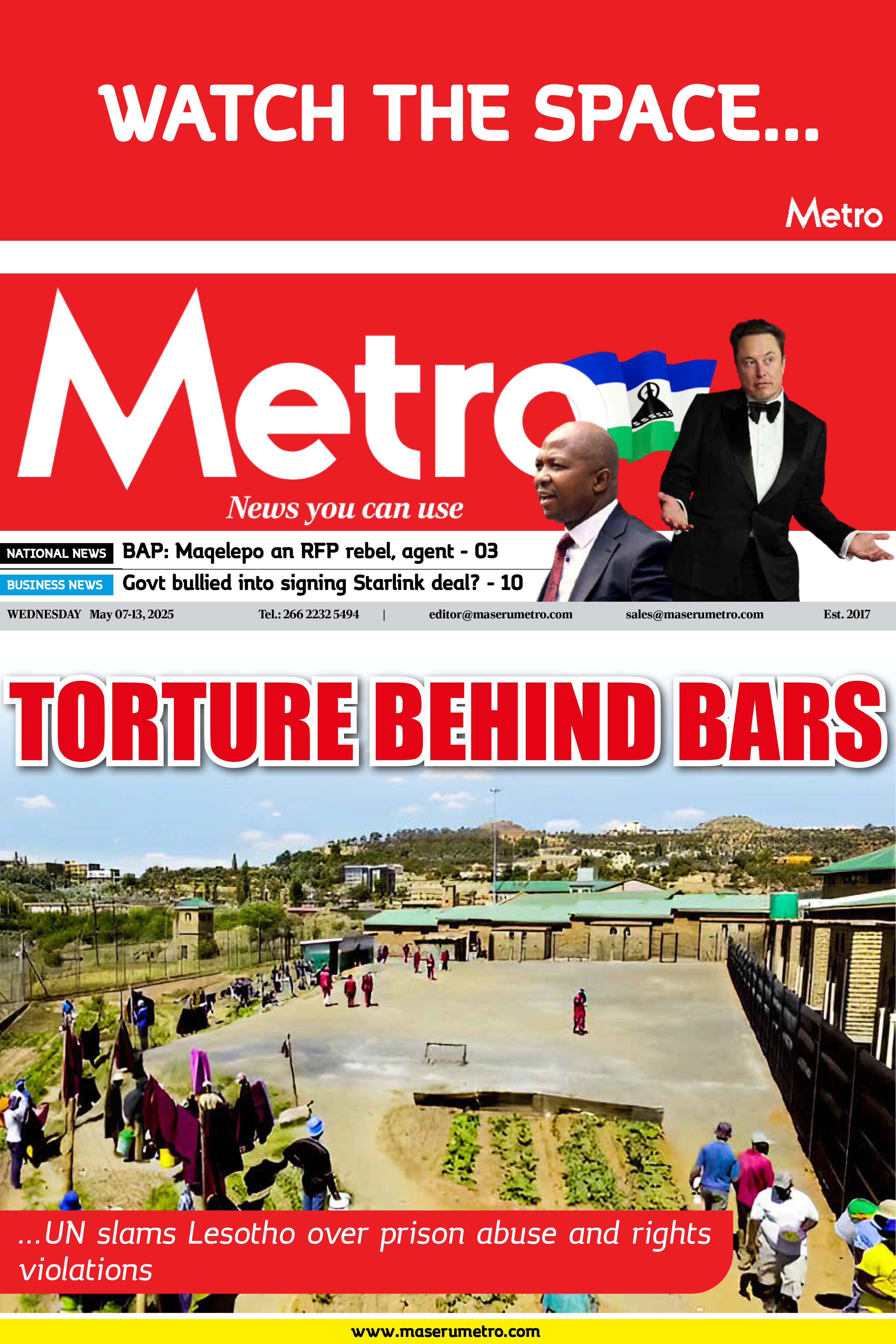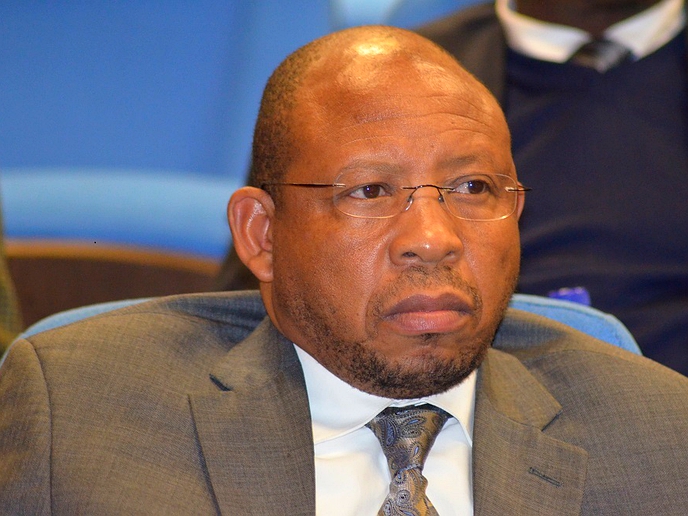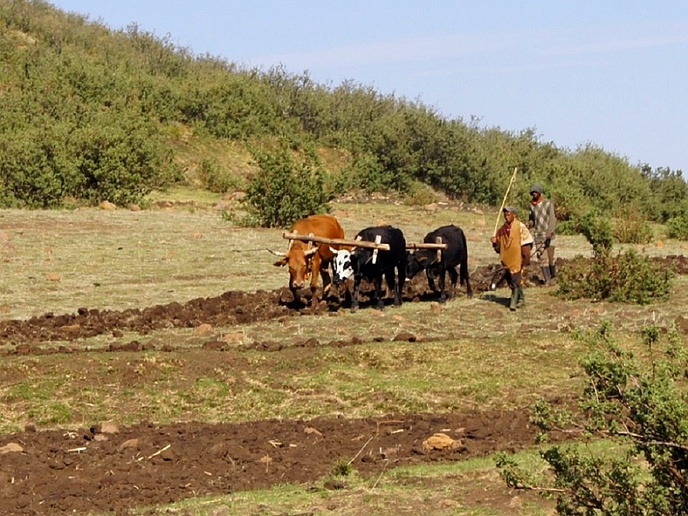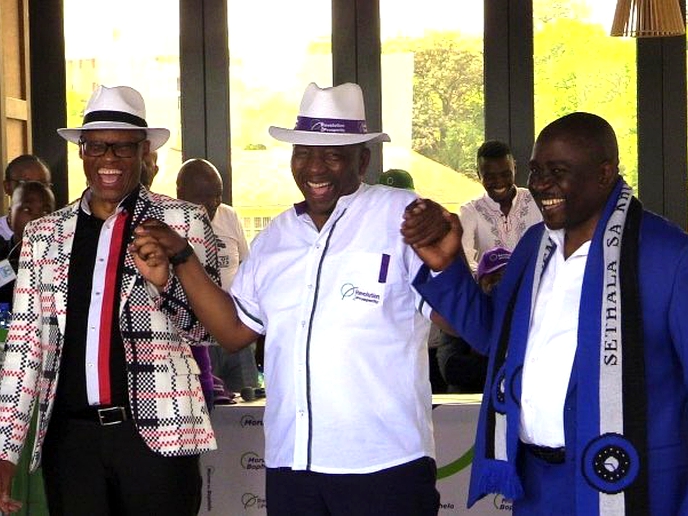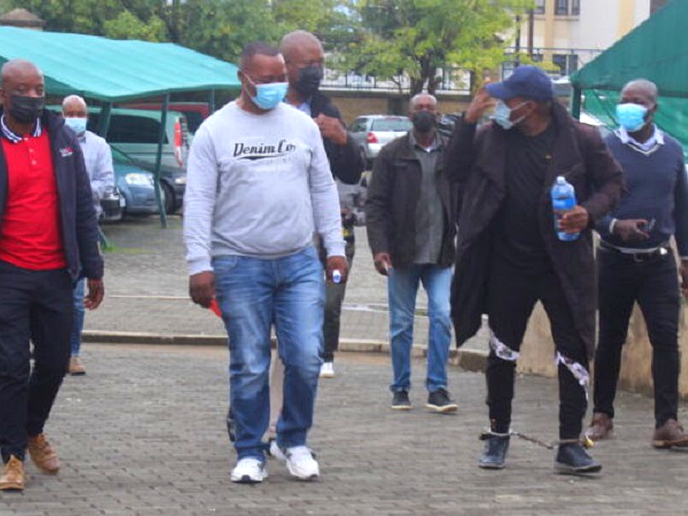THE extradition of Habofanoe Lephuthela Ntsie and his appearance in the High Court this week marks a turning point in Lesotho’s failing criminal-justice system.
comments
March 11, 2022
EDITOR
3 min read
Our faith in the criminal-justice system restored
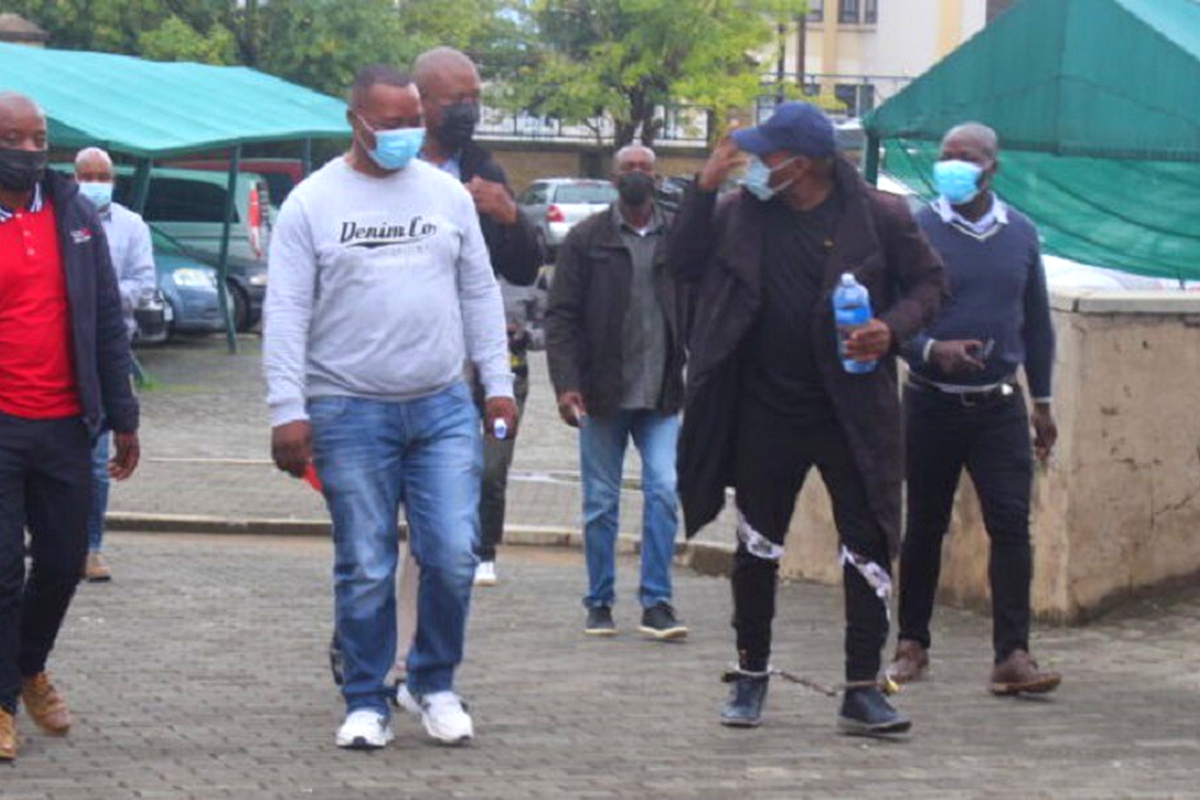
Lephuthela Ntsie arrives at court in leg shackles
Story highlights
In recent years, the country has acquired an international reputation of an abused justice system by prosecutors, lawyers, criminals, judges and politicians.
Last week, a prosecutor of the land court was killed in cold blood. A month ago, a lawyer was beaten to a pulp by a police officer and there have been cases of bribery between legal practitioners and criminals, all pointing to a failed criminal-justice system.
Also this week, former Prime Minister Motsoahae Thabane and his wife ’Maeisaiah appeared in court for the murder of Thabane’s estranged wife, Lipolelo Thabane who was murdered in a hail of bullets on June 14, 2017 near her Ha ’Masana residence.
On April 28, 2018, Tumelo Mohlomi, a student from the National University of Lesotho was fatally shot at the back of her head by a police officer.
Currently, the criminal trial into the killing of army commander, Lieutenant General Maaparankoe Mahao is being pursued, with indications that there could be international pressure to the conclusion of all pending high profile cases.
The public at large can only watch with bated breath to see what is going to happen to some prominent politicians accused of human trafficking.
Otherwise Lesotho will forfeit the second round of the US-Millennium Challenge Compact, which saw the country sign and successfully implement a five-year $362.6 million grant to reduce poverty and increase economic growth.
This US money is not for free as it is tied with strings like good governance and the rule of law.
Not only has Lesotho been under the spotlight for the murder of Maile Mosisili, but the country has been under radar since 2009 with the assassination attempt on his father, the then Prime Minister Pakalitha Mosisili.
The closure of some embassies in Lesotho has underlined the importance of security and preparedness by diplomats in the country.
The close proximity of Lesotho to South Africa, where there is an exchange of fugitives has wrought immense pressure on Lesotho.
The country’s inability to prosecute matters is often brought about by lack of political will by authorities to pursue fugitives and arrest them.
With the latest developments in the High Court, we are however aware that there is improved communication and coordination between Lesotho and South Africa.
This situation is a clear lesson that what happens inside Lesotho and South Africa should be communicated not only to Maseru and Pretoria’s constituent posts, but also to the borders and citizens.
Enjoy our daily newsletter from today
Access exclusive newsletters, along with previews of new media releases.
Nevertheless, arrangements should also be ratified to keep South Africa informed about fugitive Lesotho politicians who are in that country to avoid the wrath of the law.
The criminal-justice system must be strengthened, where the constitution and law rightly prohibit arbitrary arrest and detention and provide for the right of any person to challenge the lawfulness of arrest or detention in court.
It is against this background that police often detain individuals improperly and attempt to refer cases for prosecution based on insufficient evidence.
In many cases, the government has coughed millions of maloti in compensation and reparations after police brutally tortured and sought to punish defendants for unknown reasons unrelated to any substantiated criminal offense.
Tailored for you
